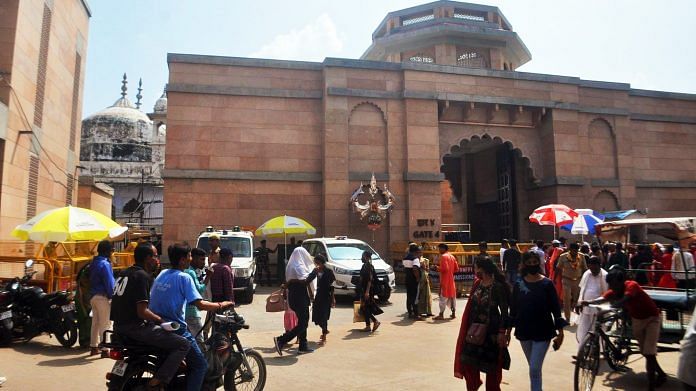New Delhi: A Varanasi court Friday dismissed the Hindu worshippers’ request to carry out carbon dating of a purported ‘Shivling‘ found within the premises of the Gyanvapi Mosque during a videography survey.
The Uttar Pradesh district court dismissed the plea in view of the Supreme Court order that said that the site where ‘Shivling‘ is claimed to have been found should be protected.
District judge AK Vishvesha, after hearing the two parties, had reserved his orders on the Hindu side’s application on 29 September.
“It will not be appropriate to direct the Archaeological Survey of India to determine the age and nature of the Shivling and there is no possibility for the determination of the questions involved in the suit by way of this order,” the judge said.
According to the petitioners, the object was found close to the ‘wazookhana’, a small reservoir used by Muslim devotees to perform rituals before offering namaz. This claim has, however, been disputed by the Muslim side, who have asserted that the disputed structure is part of a fountain inside the mosque.
Carbon dating is a scientific process that determines the age of an archaeological object or finding. The examination is usually carried out to determine the age, constituents and nature of the structure.
Four of the five plaintiffs, who have filed a suit demanding praying rights inside the mosque area where idols of “Maa Shringar Gauri and other visible and invisible deities” are located, had asked for carbon dating.
However, one of the petitioners, Rakhi Singh, opposed the application on the ground that any such examination of the object would in all likelihood cause “irreparable damage to it, rendering it unworthy of worship”.
“Such a damage would hurt the sentiment of Hindus, who believe the structure discovered during the videography is a Shivling,” she said.
The Anjuman Intezamia Masjid Committee also opposed the application and argued that any such examination would violate the Supreme Court order, which requires the structure and site in question to be protected. The committee further argued that carbon dating was not an appropriate test to determine the structure’s age.
On 12 September, the district judge had dismissed the committee’s challenge to civil suits, saying the plea is not barred by the Places of Worship Act and the suits seeking right to worship inside the mosque are maintainable.
Also read: SC ruling on hijab & Gyanvapi won’t just be limited to faith. It’ll be about our democracy



